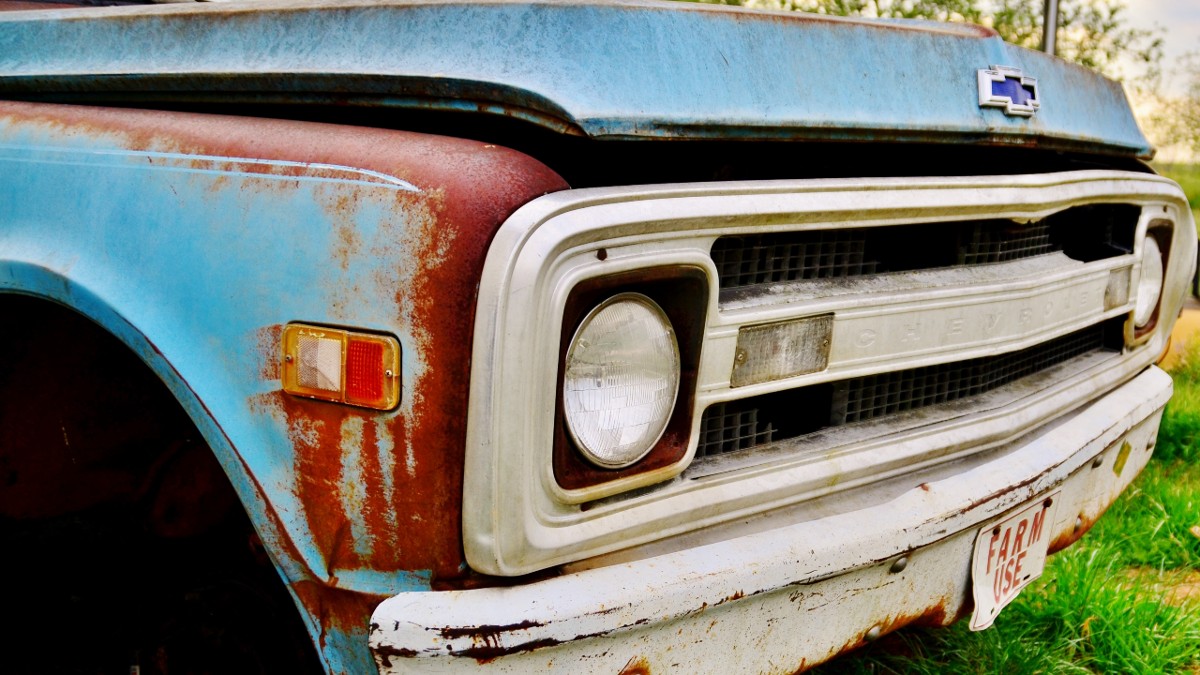Rust is common in the automotive world and a big problem for Chevys. It’s among the brands that rust loves the most. If you’re wondering whether Chevys are prone to rust and how to prevent it, this article is for you.
Chevy’s usually come up when talking about rust in the automotive world. Exposure to salt and water encourages rust on your car. You can prevent it by regular cleaning, visual inspection for signs or rust, and covering the car when not using it for an extended period.
When talking about rust in the automotive world, Chevrolet usually comes to anyone’s mind. Chevys rust when badly neglected or not exposed to rust treatment. People living in or near the rust belt usually notice their Chevys rusting.
What Causes Chevys To Rust?
People living near the coast expose their Chevys to salty sea air. This may deposit corrosive particles on the car. Salt and other snow-melting particles are getting on the road. Yet, they are highly corrosive and encourage rusting in vehicles.
Ignoring cleaning and inspecting your car increases the chances of rusting. Not washing your car or inspecting it periodically increases the chances of rust. It usually happens when collected water sits for a prolonged period before removal through evaporation or removal.
Where Is Rust Most Likely To Be Found On A Chevy?
Rust usually appears on the body and frame panels of a Chevy. This is because the water travels and drains downward. So, you’re likely to notice rust on the vertical body panels or near the bottom edge, which are curled or bent up. The presence of water here encourages rust build-up.
Other common places where rust is likely to build up are the trunk, the engine, and the undercarriage. However, rush can potentially form anywhere in your car.
How Do You Avoid Rust On Your Chevy?
Preventing rust is one of the most important aspects of maintaining your car. You can do this by keeping the following in mind:
Regular Washing
Washing your every two weeks in warm weather and weekly in cold weather. Cleaning the inside of your car if liquid spills is also important. It prevents rust spots from forming.
The effect of spills and abrasive damage to your car increases the more you don’t remove them. Washing ensures that your paint job is in great shape to prevent rust and corrosion.
Waxing
Waxing the car after every four months with a rust prevention product. The wax works like a protective layer against dirt and debris. It also protects your car from fading colors and UV damage.
Applying Undercoating
Ford applies a special protecting sealant on the undercarriage of its cars. This is because it’s the part most susceptible to rust. There are various aftermarket sealants and processes to safeguard the unit from corrosion. DIY undercoating can keep your car in great shape.
Applying coating on the car’s paint deters rust and corrosion. The surface needs cleaning before applying an anti-rust spray to eliminate moisture. This preventive measure ensures that you eliminate rust before spreading to other parts of your car.
Other ways to prevent rust on your car include:
- Washing salt away from your car regularly if you live near the coast.
- Clearing the drain plugs to eliminate dirt and debris around the hood, trunk, and bottom of the doors.
- Not driving through puddles.
- Covering or keeping your car indoors when not using it for an extended period.
- Driving away from other vehicles to avoid nicking your paint job.

How Long Is A Chevy Covered For Rust Damage?
A new Chevy comes with a warranty to cover rust and corrosion. The warranty covers the first three years or 36,000 miles against corrosion damage. A new Chevy is covered for up to six years or 100,000 miles against rust.
You must be aware that the new vehicle limited warranty for Chevys discourages using aftermarket rustproofing products. These products may actually reduce the vehicle’s inbuilt corrosion-resistant ability and damage the car. This voids the warranty from the manufacturer.
What Chevys Are More Resistant To Rust?
People who live in the rust belt must be aware of the roughness of the undercarriage resulting from exposure to snow and salt. When in the market for a new car, people in this region must consider these rust-resistant Chevys.
2014 Chevy Silverado
Topping our list of rustproof Chevys is this pickup truck. According to GM’s media division, it’s the most rustproofed model of all time. The car has a rust-resistant coating that protects its whole body from rust and corrosion.
Chevy Bolt
The Bolt EV has outstanding performance against rust. This is because the majority of its parts are made of plastic. The car has corrosion-proof metal parts because the Ford uses undercoating techniques to build its underside.
The use of improved hem flanges to seal the doors and hood makes it rustproof. Additionally, its undercarriage flange sealing minimizes deterioration over time. A waxy undercoating on its underside has abrasion-resistant material.
Chevy Corvette
Apart from being popular for its potency on the track and poise, the Corvette has strong resistance against rusting. Its primary composition of plastic and carbon contributes to its exceptional corrosion resistance.
Chevy Sonic
Most of Ford’s smaller models, such as the Sonic, have a reputation for resisting rust. The car is built using formulated galvanized steel. It increases the vehicle’s resilience to damp weather conditions without being prone to rusting.
What Do You Do When You Find Rust On Your Chevy?
When you discover rust on your car, you can use sandpaper to rub the rust out. It ensures that it doesn’t spread to other parts of the vehicle. Once you see rust, you must remove it as soon as possible before spreading. A speck of rust can lead to more.
After getting rid of the rust spot using sandpaper, apply primer and paint over the exposed part. The paint protects the metal from rusting again when left exposed. Alternatively, you can use an aftermarket rustproofing product, although it voids the car’s warranty.
How Does Rust Happen On A Car?
Rusting happens when iron or steel is exposed to elements that encourage it to break down. Elements that encourage rusting are iron or steel, oxygen, and water. When iron is exposed to water and oxygen, it breaks down into iron oxide, a different substance.
It’s impossible to avoid iron or steel on a car despite adding some plastic parts. So, wherever your car is wet, the chances of rusting increase. Exposure to salt for those living near the coast speeds up the rusting process.
Corrosion becomes much quicker because of the chemical reaction between water and salt. The key to avoiding rust on your car is to keep water and salt away wherever possible.
In Light Of These Facts,
Chevys rust when exposed to corrosive elements such as salt and water. Some models, such as the 2014 Colorado, have special features that make them more resistant to corrosion. You can keep your car free from rust and corrosion with ideas including regular washing and waxing.

